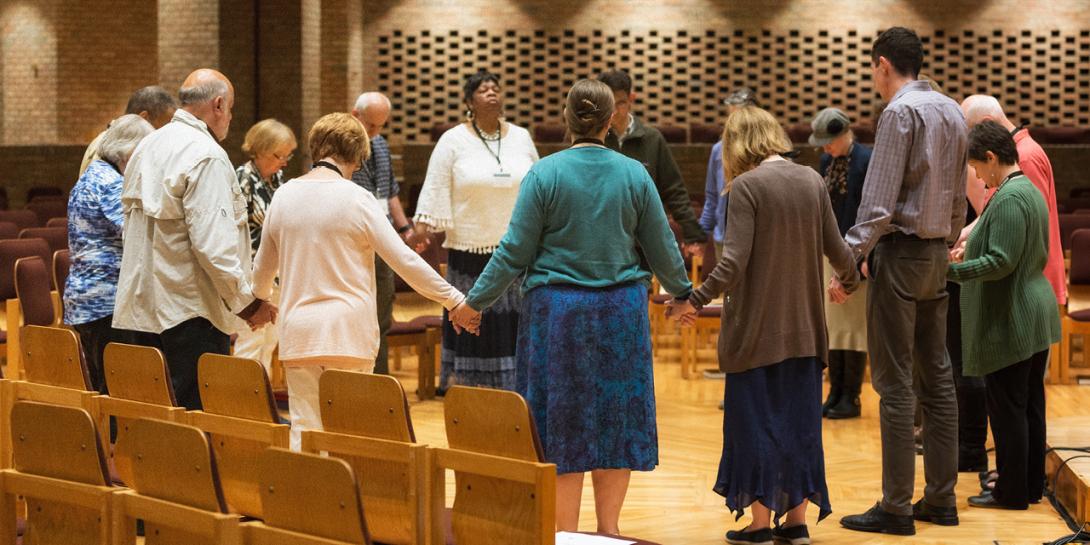Proclaiming the Word (Bible Study)
This Bible study lesson explores how to proclaim the Word of God.
Responding in Praise and Thanks (Bible Study)
In corporate worship we are expected to give a response to what God has said and done. So we talk about the "service of response" of a worship liturgy, and it always follows the proclamation of God's word in the sermon. When God has spoken his word of hope and grace, it is unthinkable that we would leave church without a response. The dialogue of worship always includes the assumption that God waits for some response to his word.
Preparation for Worship (Bible Study)
This Bible Study looks at preparing for worship and that it is possible to "come to church" and still miss worship. And good preparation will likely be the key that makes the difference.
Congregational Song (Bible Study)
In the dialogue of worship in the Reformed tradition, congregational song has primarily had the role of the people's response to God. And that role has been shaped by Scripture, as shown through a study of the Psalms as the songbook of the Bible. In our discussion on congregational song, we will examine closely the nature of the Psalm songs and how that can serve as a model for our songs today.
The Opening of Worship (Bible Study)
We are called into the presence of God. We are exhorted to come with joy, thanksgiving, music and song. We affirm that he is the "great God," our maker and our shepherd. We can expect to be welcomed into his presence because we are the "flock under his care." What a rich spirit in which to begin worship!
Divine Purpose (Philippians 1)
In this pericope Paul speaks of his affirmed faith to the Philippians. While trials and difficulties may attempt to weaken our faith, Paul finds the opposite. The work of the gospel goes forward even in difficulty, and in that he finds joy and an affirmed faith in the purposes of God.
Collaboration in Worship Planning (Bible Study)
Ministry goes forward when faith-filled people work together collaboratively! Collaborators are co-laborers. They contribute from the field of their own gifts and passions. But they do not labor in isolation. Their labors are so interwoven that the final product is a composite. A group effort is genuinely the product of the entire group, not merely a modified solo plan"
Grace and Peace (Philippians 1)
The body of Christ in this world, gathered by God and called saints, can be confident that grace and peace continually come to them through the same love that called them to be God’s children.
The Pattern of a Worship Service (Bible Study)
We do not find that the Bible prescribes a specific liturgy for worship, we do find that our understanding of the Scriptures and the guidelines that it provides will be very helpful in discerning the pattern of worship and understanding the freedom for variation and flexibility in our worship life.
Good Reasons for Good Worship (Bible Study)
Before you come to the meeting, spend some time with these two chapters from Revelation. As you read these chapters, remind yourself that while John is an exile on the island of Patmos he receives this revelation from God. You are getting a view of the throne room of heaven.
Affirmations and Professions (Bible Study)
One significant element of worship renewal in our generation is that congregations are finding their voices. Previously, most worshipers were silent in worship, except when they participated in congregational singing. Increasingly, worshipers use their voices in worship for spoken expressions in addition to songs.
The Reading of Scripture (Bible Study)
Worship is a conversation between God and his children, and the Scriptures are the surest and clearest means through which God speaks. The Scriptures are his voice, and when the Scriptures are read, God is speaking to his people. It is wise, therefore, to pay close attention to the role that the reading of Scripture has in our worship services.



